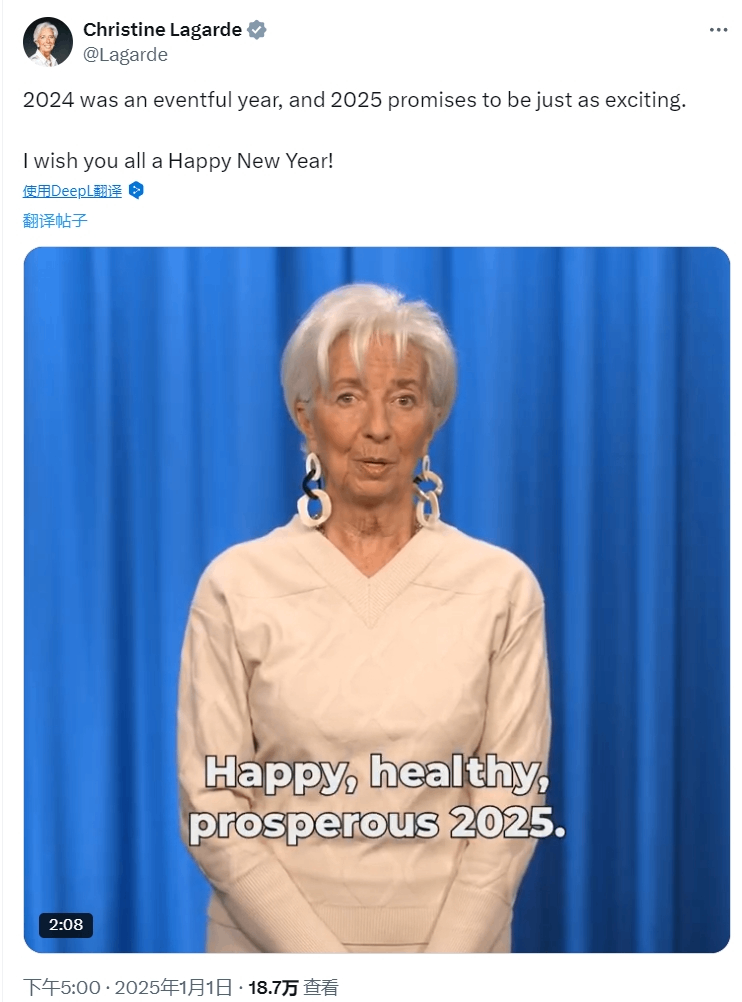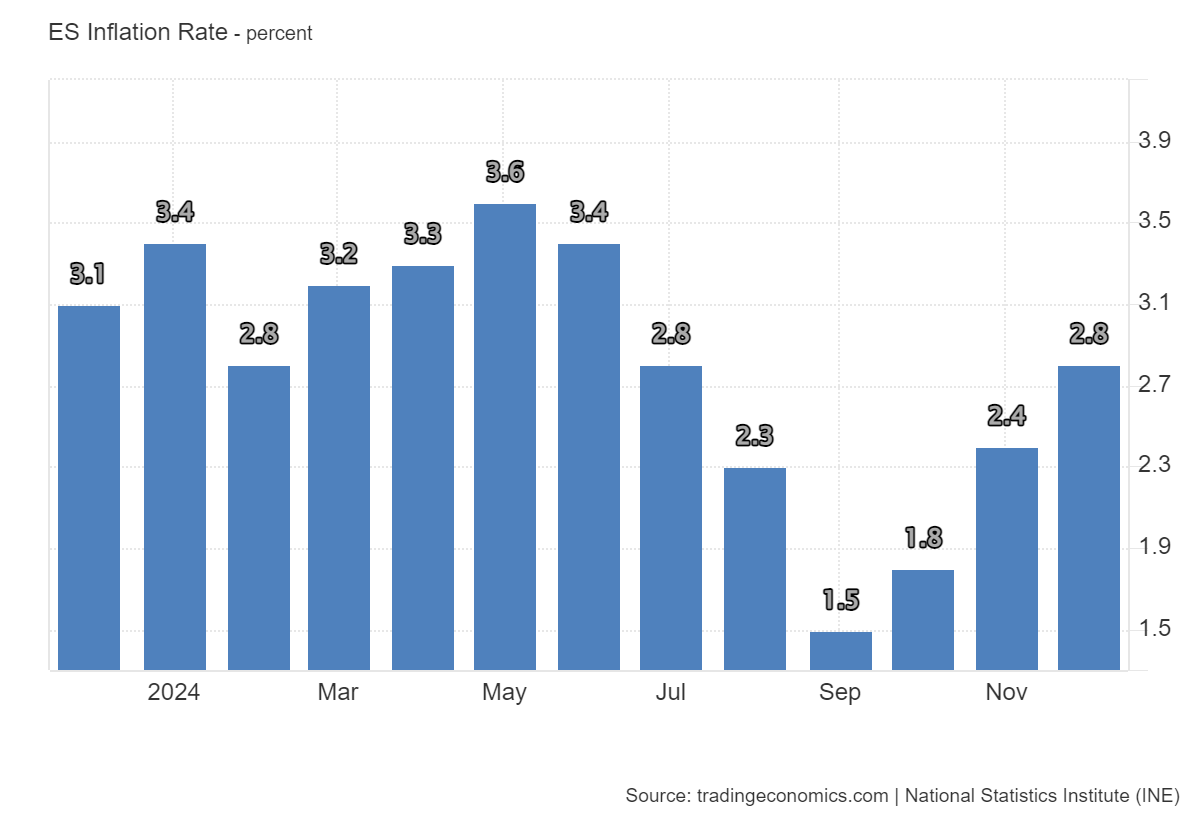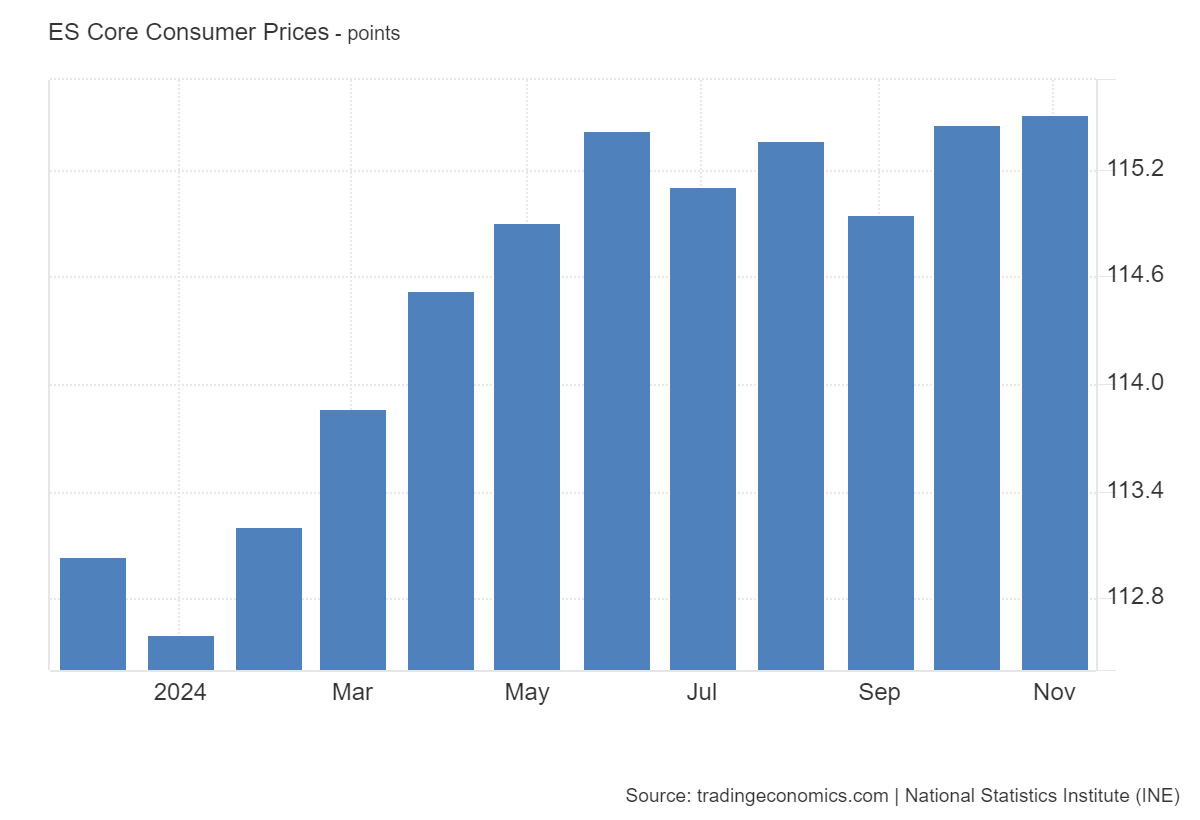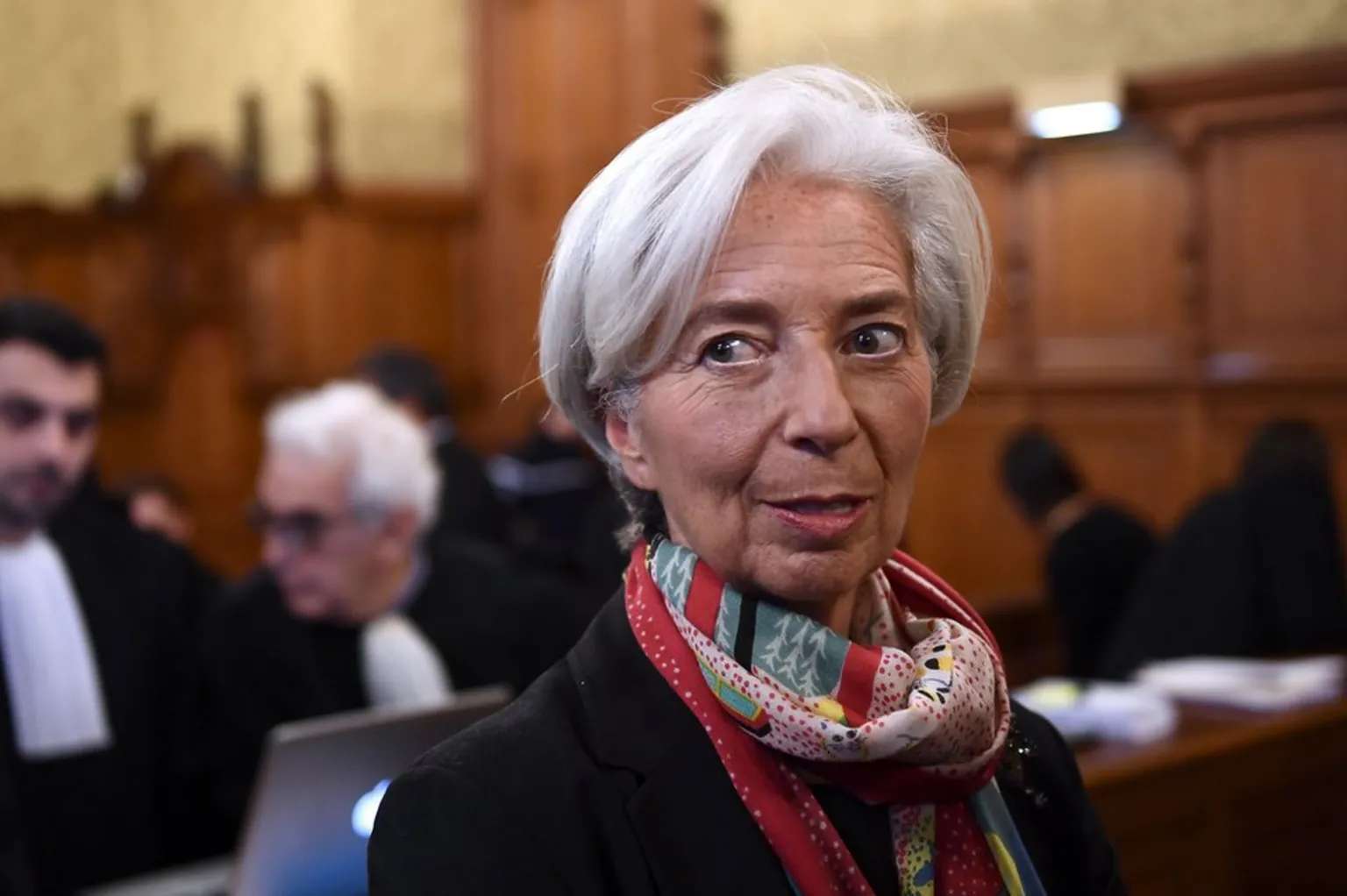Lagarde said: In 2024, we have made significant progress in reducing inflation.
On January 1, at the beginning of the 2025 New Year, European Central Bank President Christine Lagarde said that the European Central Bank is within reach of achieving its 2% inflation target.
Lagarde: 2025 is "huge and arduous"
Lagarde said on her X platform: "In 2024, we have made significant progress in reducing inflation, and we hope that in 2025 we can achieve our goals in accordance with expectations and strategic planning.Of course, we will continue to work hard to ensure that inflation remains stable at the medium-term target of 2%.”

Consumer price growth in the euro zone slowed last year and fell below the ECB's target in September, but has rebounded in recent months, with Lagarde warning that it will fluctuate around current levels in the near term.
Still, the economic slowdown allowed policymakers to cut interest rates by a quarter of a percentage point four times, and economists predict four more cuts by June.
Lagarde described the ECB's 2025 calendar as a "huge and onerous agenda" and also highlighted a review of the central bank's monetary policy strategy, the redesign of the digital euro and eurozone banknotes, although the latter project will not be completed this year.
Spain is the first to release inflation data
Due to the base effect, Spain's inflation rate exceeded expectations in December. Although it remained above 2% for the second consecutive month, it no longer soared as in the past, providing support for a gradual interest rate cut.

Consumer prices in the country rose 2.8% from a year ago, according to data released Monday by Spain's National Statistics Institute.By comparison, the increase in November was 2.4%, above the median forecast of 2.6% after economists surveyed.
The basic pressure index, which excludes energy and some food prices, rose to 2.6%.

Lagarde said that although inflation in the euro zone will fluctuate around current levels in the near term, the surge trend of recent years is gradually becoming a thing of the past.
Data showed that the change in Spain's inflation rate in December was mainly due to falling fuel prices in December 2023.Leisure and culture are also factors driving inflation, but to a lesser extent, the Bureau of Statistics said.
Spain has successfully curbed inflation this year, making it the strongest economic growth in the region.Although the government has scrapped some measures to protect consumers when prices soar, such as value-added tax exemptions for electricity bills, other measures such as free train tickets are still being implemented.
Unemployment hovers at its lowest level in more than 15 years, a sign of economic health.This helps raise wages and drives up the price of services, which remains a headache for the European Central Bank.
Spain's data is the only data released this week among the major eurozone economies, while data for Germany, France, Italy and the entire eurozone will not be released until the first full week of January.




